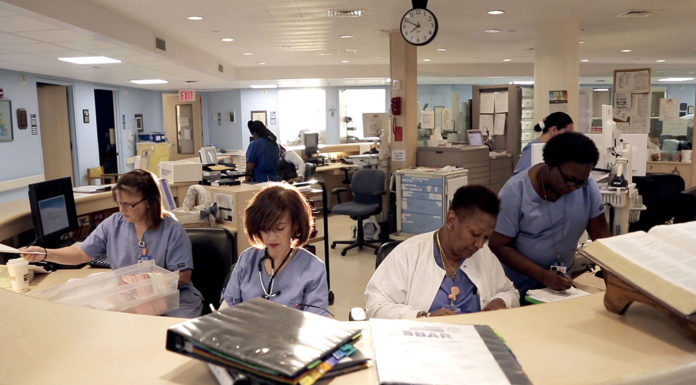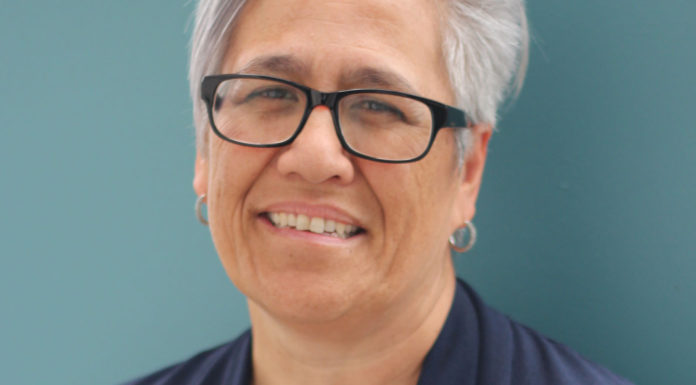A more ‘equitable’ offer, a set date for a pay equity settlement and a belief that striking next week will not lead to more money, is behind NZNO recommending the latest district health boards’ offer.
The New Zealand Nurses Organisation website initially crashed this afternoon when it released details of the fourth offer by the 20 district health boards (DHBs) to its DHB nurse, healthcare assistant and midwife members.
The new offer which boosts the minimum pay increase – up from previous offer’s 9% over three years to closer to 12.5% or more for longstanding NZNO DHB staff across all pay scales – is being recommended by NZNO to its DHB members. The boost to pay scales and steps of other NZNO DHB pay scales comes at the expense of delaying the extra new pay steps for the majority of nurses on the top of the basic pay scale.
The social media response of nurses is again mixed with some supportive of the new offer for offering extra steps and pay scale boosts for a wider range of NZNO members and the pay equity date; and many negative that it was only a re-shuffling of the previously rejected deal.
The revised offer – that NZNO members will start online voting on tomorrow – also includes an immediate start to pay equity talks and an agreement to implement any pay equity settlement from the end of next year – a return to a similar pay equity package to the second offer from the start of the year. But also retains the extra $38 million for immediate new staff recruitment and safe staffing commitments of the third offer.
The strike planned for this Thursday was called off on Friday after facilitation lead to this offer – the fourth since talks began more than a year ago with the 20 district health boards – that the NZNO was prepared to recommend to its members. A strike notice is still live for July 12 and the results of the online voting – which closes on Monday July 9 – will decide whether the 24 hour stoppage by up to 30,000 NZNO DHB members will go-ahead. NZNO represents the vast majority of the DHBs nursing and healthcare assistant workforce and also represents midwives.
NZNO Industrial services manager Cee Payne said the offer could be start of a new era for nursing that ‘cements’ in pay equity and safe staffing during the term of the MECA that would see nursing back on its feet.
“The NZNO negotiating team has made a recommendation on this offer because they really do believe that there is no additional funding that can be gained through taking industrial action at this point in time,” said Payne in a video address to members.
She has also described the offer as meeting the the ‘number 1 issue’ that members showed they felt most deeply about in NZNO’s pre-facilitation member survey – which was a more equitable outcome for all occupational groups covered by the multi-employer collective agreement (MECA).
Cee talks about why the new offer will help put nursing and midwifery back on its feet.
The previous offer was seen as unfairly targeting the majority of DHB NZNO members who are covered by the registered nurse (RN) basic pay scale at the expense of senior nurses, registered midwives (RM), nurse practitioners (NPs), community RNs, enrolled nurses and health care assistants (HCAs) on the other DHB pay scales. That offer would have seen the 15,000 nurses at the top of the five step RN/RM scale getting the equivalent of a 15.9 per cent increase over three years – by adding two additional scale steps – compared to 9-10 per cent for members on the other pay scales.
The revised new offer adds either additional steps to members’ pay scales or boosts the pay of nurses on the top grade – and delays the introduction of the new sixth and seventh step for nurses on the RN base pay scale. The result is that RNs and midwives on the top of the RN/RM base pay scale are being offered between 12.5% to a maximum of 15.9% over the MECA’s three year life; enrolled nurses and and HCAs at the top of the basic scale are being offered the equivalent of 12.5%; senior nurses/NPs would get the equivalent of 13.6% for those on the top step of each grade; and community RNs/ midwives would get 12.6% for those on the top step of each grade.
For RNs, ENs, midwives and HCAs who are not at the top of the current three-five step basic scales would get the standard 3 x 3% pay increases (equivalent to around 9.6% over the MECA’s term) plus the $2000 lump sum pro-rata payment (equivalent to 3% of the top of the current RN base pay scale) that all members will receive.
NZNO industrial services manager Cee Payne said the primary reason for recommending the offer was that it addressed historical undervaluing of nurses and midwives. She said it was pleased to have achieved the commitment to pay equity implementation in the life of the MECA which was due to expire at the end of July 2020. The last MECA expired on July 31 last year.
The revised offer retains the $38 million for immediate boosting of nursing numbers and the commitments to implementing the safe-staffing CCDM care capacity demand management tools.
DHBs spokesperson Helen Mason said she was pleased NZNO was putting the revised offer to members with the offer meaning more people getting pay rises, increased commitment to addressing workforce issues and a firm undertaking to implement the pay equity talks. She said meanwhile the DHBs are continuing to plan for the second strike schedules from 7am on July 12.
FOURTH OFFER:
- Retains three year term (expiry July 31 2020)
- Retains funding for safe staffing initiatives. Immediate $38 million for additional 500 nursing staff across 20 DHBs, $10 million for extra DHB nursing staffing for implementing CCDM and extra $750K for SSHW Unit to help ‘fast-track’ CCDM
- Retains $2000 lump sum, increase to on-call rates and EN PDRP increase
- Retains 3% increase June 2018 + 3% August 2018 + 3% August 2019
- Retains 1% added to senior nurse/midwife pay scale in June 2018
- NEW – adds 3% to top of community nurse/midwife pay scale May 2019 (total pay rises equivalent to 12.6% over term of MECA for nurses on top scale)
- NEW salary step for enrolled nurses May 2019 (equivalent to 3% and 12.5% total increase over term for ENs on new step)
- NEW – 3% increases on all grade steps for senior nurses (equivalent to 13.6% over term for senior nurses on top step of each grade)
- NEW salary step for HCAs May 2019 (equivalent to 12.5% over term for those on new step)
- NEW – delayed introduction of new salary steps for nurses/midwives on basic pay scale – now Step 6 introduced May 2019 and Step 7 (August 1 2020 – outside of proposed MECA term but legally enshrined in MECA terms of agreement). Equivalent of 12.5% for those on step 6 in August 2019 and 15.9% on step 7 in August 2020.
- NEW – commitment to implement pay equity negotiation outcomes from December 31 2019






















